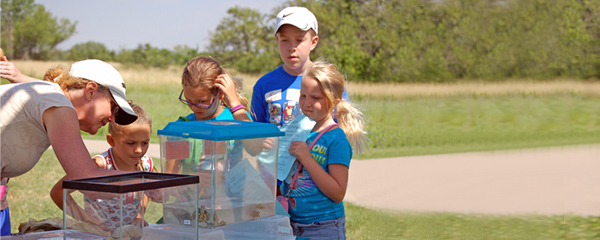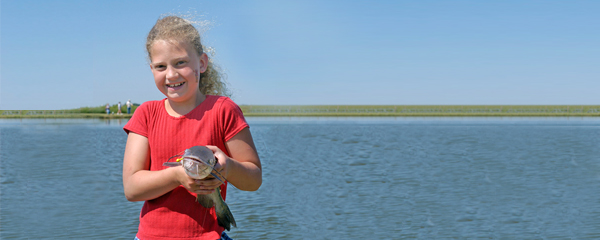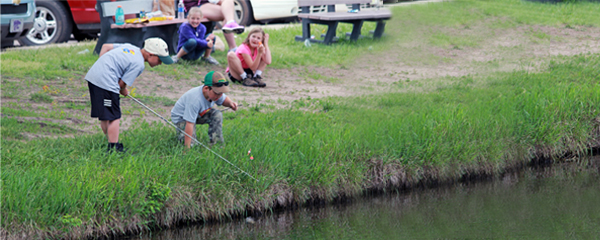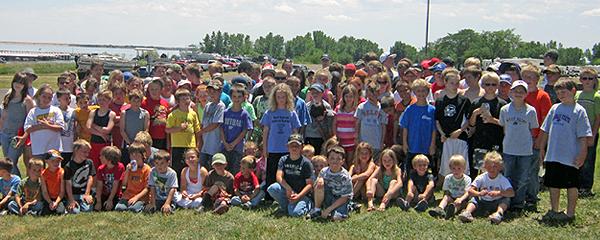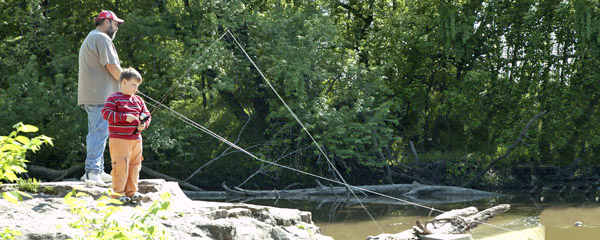PRATT– The Kansas Forest Service (KFS) will host the 2013 Agroforestry Field Day May 8 on the farm of Dave and Mary Hendricks at I Road and 190 Ave, Wakeeney. Discussion topics will include tree health threats, creating mule deer habitat, lesser prairie chicken habitat, water quality concerns in western Kansas, managing for upland birds from the landowner’s perspective, windbreak renovation, assessment and funding projects, and creating a burn plan for prairie. Attendees will also get to hear from the Hendricks as they share their experience working with trees and shrubs in contemporary agricultural systems.
Windbreak Renovation, Assessment and Funding Projects
With the current drought stressing windbreaks throughout western Kansas, KFS foresters Jim Strine and Bob Atchison will provide tips on how to maintain and renovate older windbreaks and shelterbelts using one of the many windbreaks the Hendricks have on their property. Suggestions on row removal, selective thinning, watering and establishing additional tree rows will be provided. Participants will also receive the latest information on financial assistance available to implement windbreak renovation projects as well as the preliminary results of a windbreak assessment study on the size and condition of shelterbelts in the Smoky Hill region.
Lesser Prairie Chicken Habitat
In response to a U.S. Fish and Wildlife Service proposal to list the lesser prairie chicken as a threatened species, a rangewide management plan is being developed to assist landowners in enhancing grassland habitat. Mark Witecha, a Pheasants Forever Farm Bill biologist, will be on hand to discuss the habitat needs of this important species and suggest conservation practices that benefit lesser prairie chickens and other important grassland birds. Witecha will also inform participants of the services Pheasants Forever can offer to landowners.
Creating a Burn Plan for the Prairie
Burning the prairie is one of the most important activities landowners can do to ensure the health of grass and range lands and the flora and fauna that depend on them. Unfortunately many landowners are hesitant to burn and those that do sometimes do not plan adequately. Several windbreaks on the Hendricks farm have been lost to wildfire for that very reason. Michele Witecha, a KFS wildlife ecologist and rangeland fire specialist, will provide a session on how to develop a burn plan that accomplishes specific management interests while lowering the risk of wildfire potential.
Managing for Upland Birds from the Landowner’s Perspective
Last season hunters harvested an estimated 475,000 pheasants and this year numbers have been down by almost 50 percent. Randy Rodgers and Helen Hands, are both wildlife biologists who have applied their years of experience managing for upland bird habitat to their farm in Rush County. Winners of the 2012 Kansas Wildlife Federation’s Land and Soil Wildlife Conservationist award, Rodgers and Hands will
 |
Conservationists Dave and Mary Hendricks
will host an agroforestry field day this May |
provide both the landowner perspective and the professional wildlife biologist expertise to educate participants on how to improve habitat for upland birds.
Creating Mule Deer Habitat
Mule deer have a different set of habitat requirements compared to upland birds and are regular visitors to the Hendricks farm. Dave Hendricks will show participants how windbreaks can be used as a fawning area for mule deer and discuss how landowners can encourage mule deer habitat on their properties.
Tree Health Threats
Nikki Opbroek, KFS forest health specialist, will offer an update on potential health threats to trees and shrubs (including drought) and provide both diagnosis and control recommendations for the major tree problems people encounter in western Kansas. Foresters will also provide suggestions on appropriate tree and shrub species to plant in the Trego County area.
Water Quality Concerns in Western Kansas
Water quality and quantity issues have never been so relevant to western Kansas. Stacy Minson, K-State Research and Extension watershed specialist, will share her knowledge of the issues and offer suggestions to participants on practices they can implement to address these challenges.
The Hendricks have been chosen as the recipients of the 2013 Kansas Agroforestry Award by the Kansas Forestry Association and the Kansas Forest Service. The Kansas Agroforestry Award is presented to landowners who go above and beyond to implement agroforestry practices on their property such as riparian forest buffers and shelterbelts. The couple will be presented with an award the morning of the event.
The cost of attendance is $10. Lunch will be provided.
In the event of rain, the field day will be moved to the Trego County Fairgrounds in WaKeeney.
